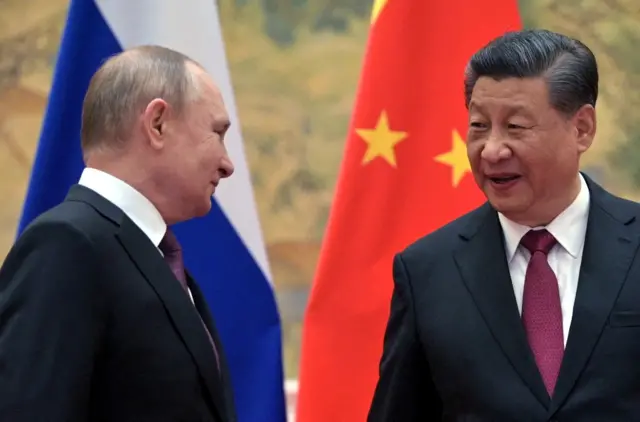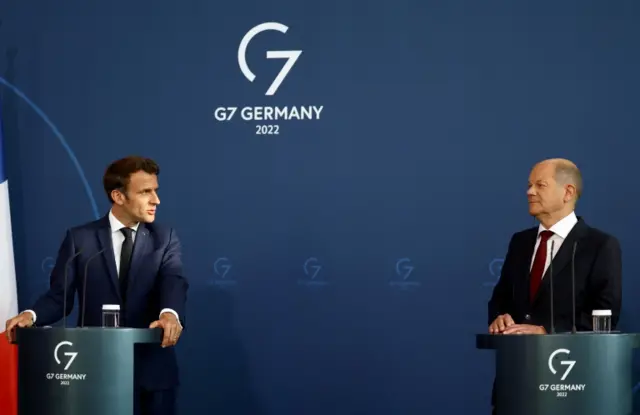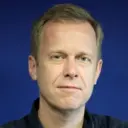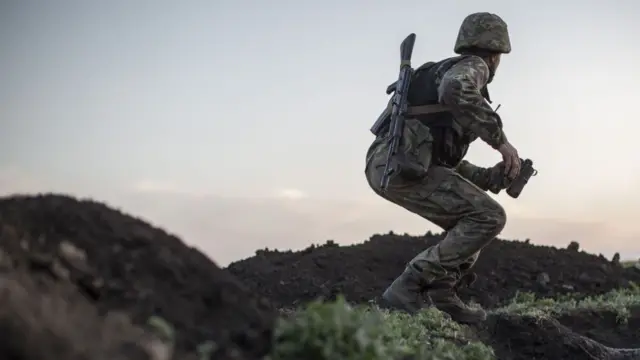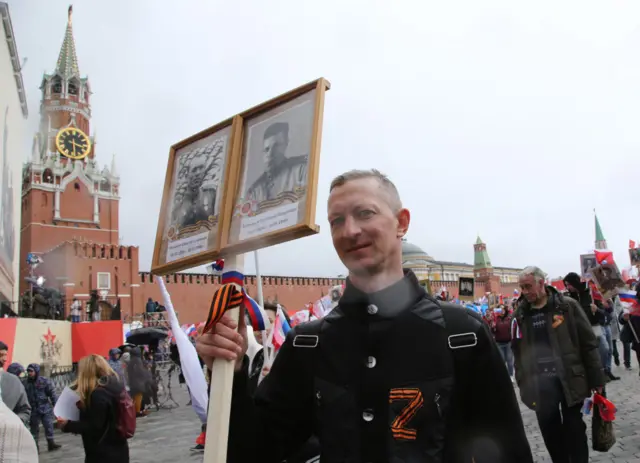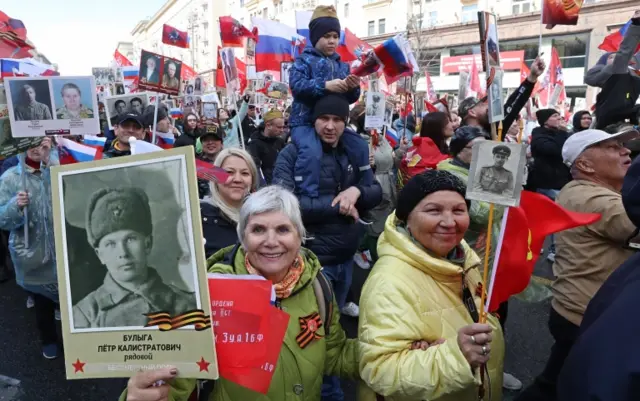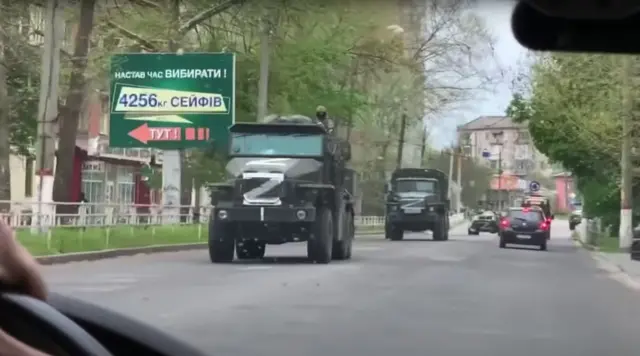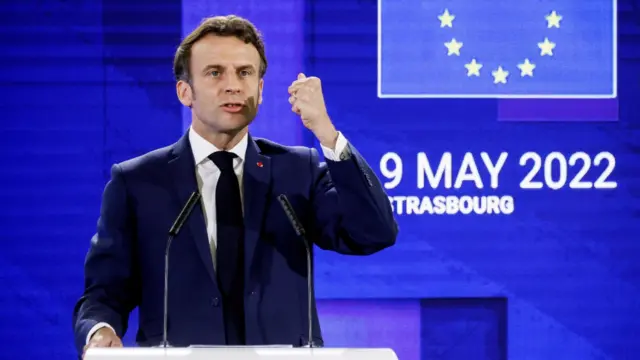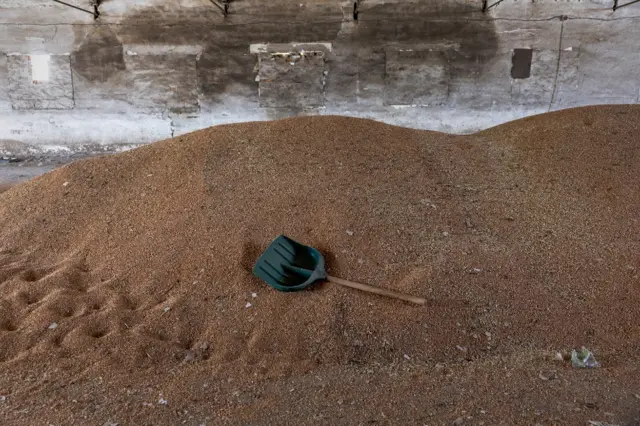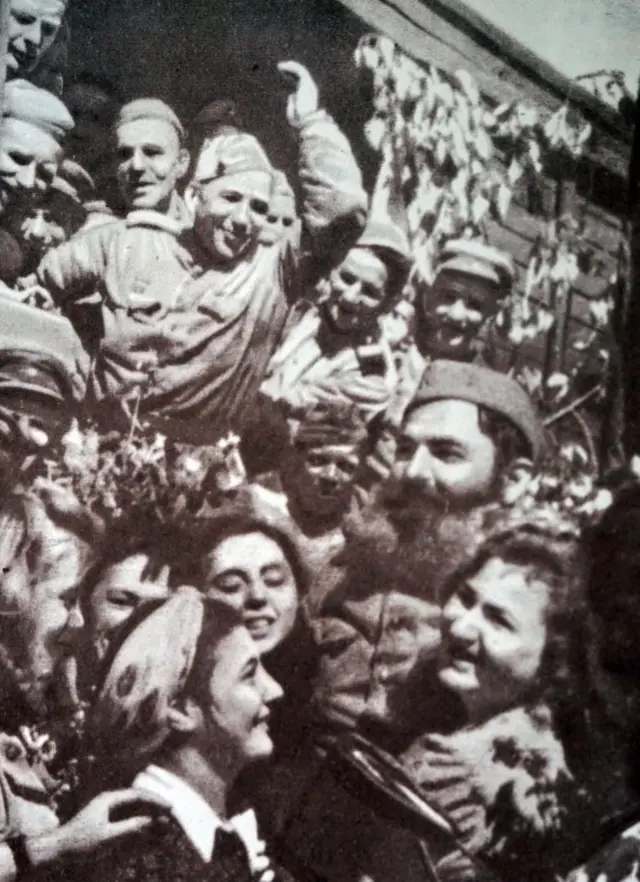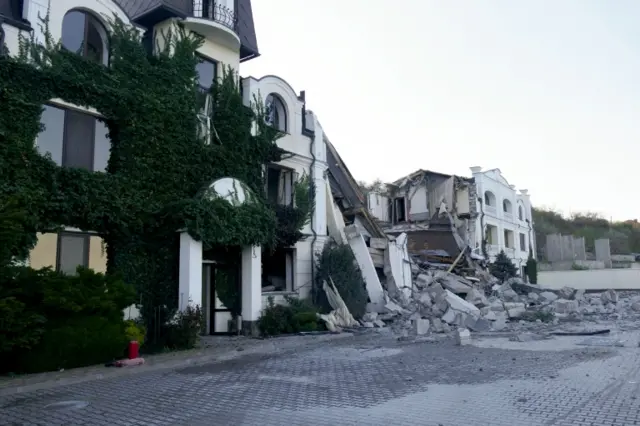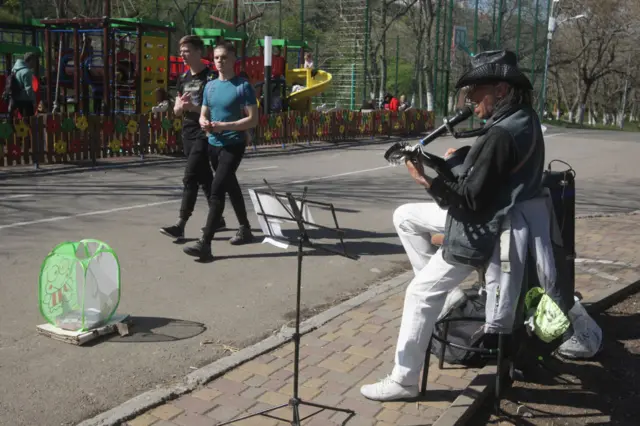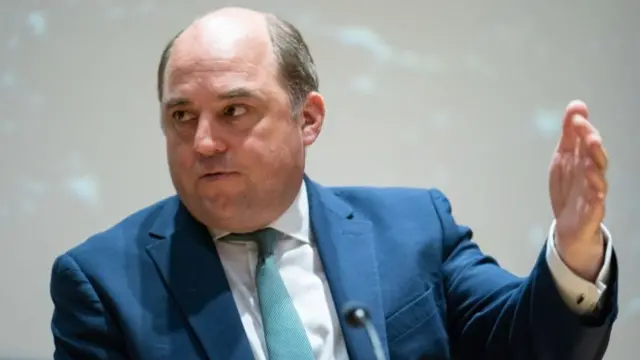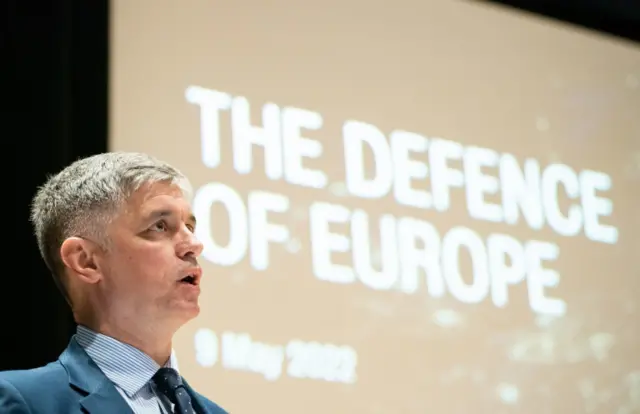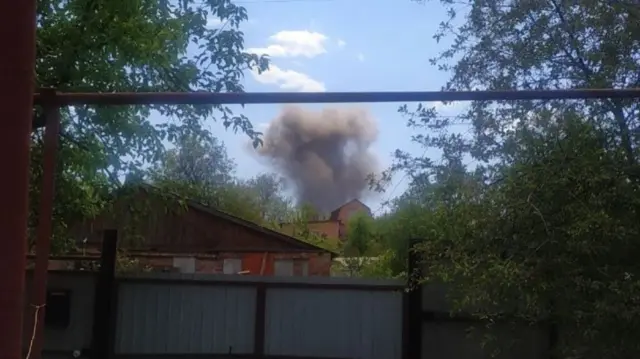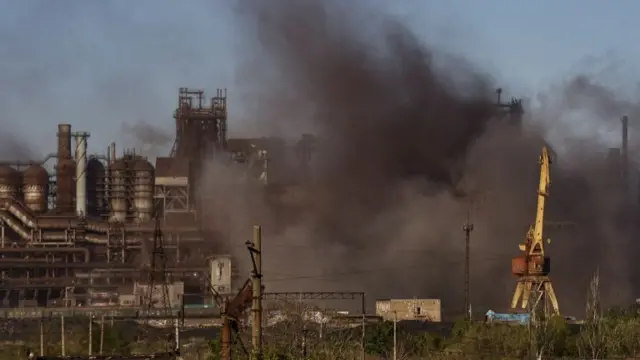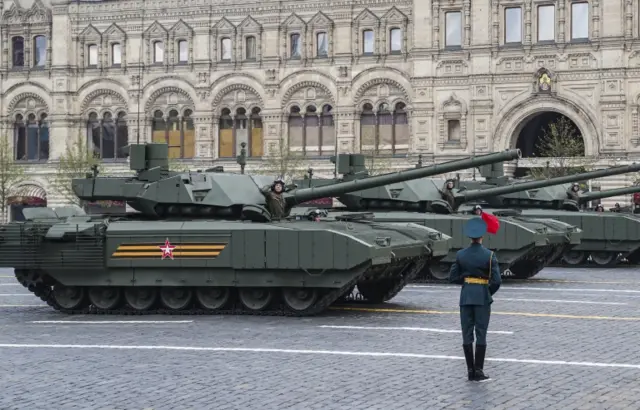Ukraine conflict shifts Europe's balance of powerpublished at 18:37 BST 9 May 2022
 Katya Adler
Katya Adler
Europe Editor
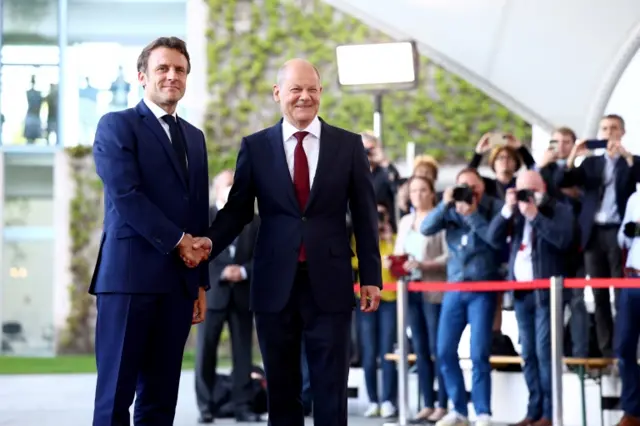 Image source, Reuters
Image source, ReutersReturning to the talks we saw in the last couple of hours between France and Germany now... it’s EU tradition for their leaders to visit each other as the first trip abroad following their election. It's an intentionally symbolic display of the bloc’s Franco-German motor purring, even roaring ahead.
But the Russia-Ukraine crisis has fundamentally shifted not only Europe’s security dynamics, but the balance of power too.
During his first term in office, Emmanuel Macron often appeared the intern to the then German Chancellor Angela Merkel. But her successor, Olaf Scholz, has handled Russia sanctions and weapons deliveries to Ukraine slowly and clumsily - frustrating voters at home and allies abroad.
Freshly re-elected, President Macron believes then that this is his moment of EU leadership - in Brussels and globally.
But the current crisis has thrown up other key players too: Poland and the Baltic nations - hawkish on Nato and defence issues; while Hungary has pulled the EU backwards on energy sanctions, prompting unfavourable comparisons with the quick-to-act United States and triggering questions in Brussels as to whether the bloc’s rule that foreign policy decisions need to be unanimous is now outdated in these unpredictable and dangerous times.
